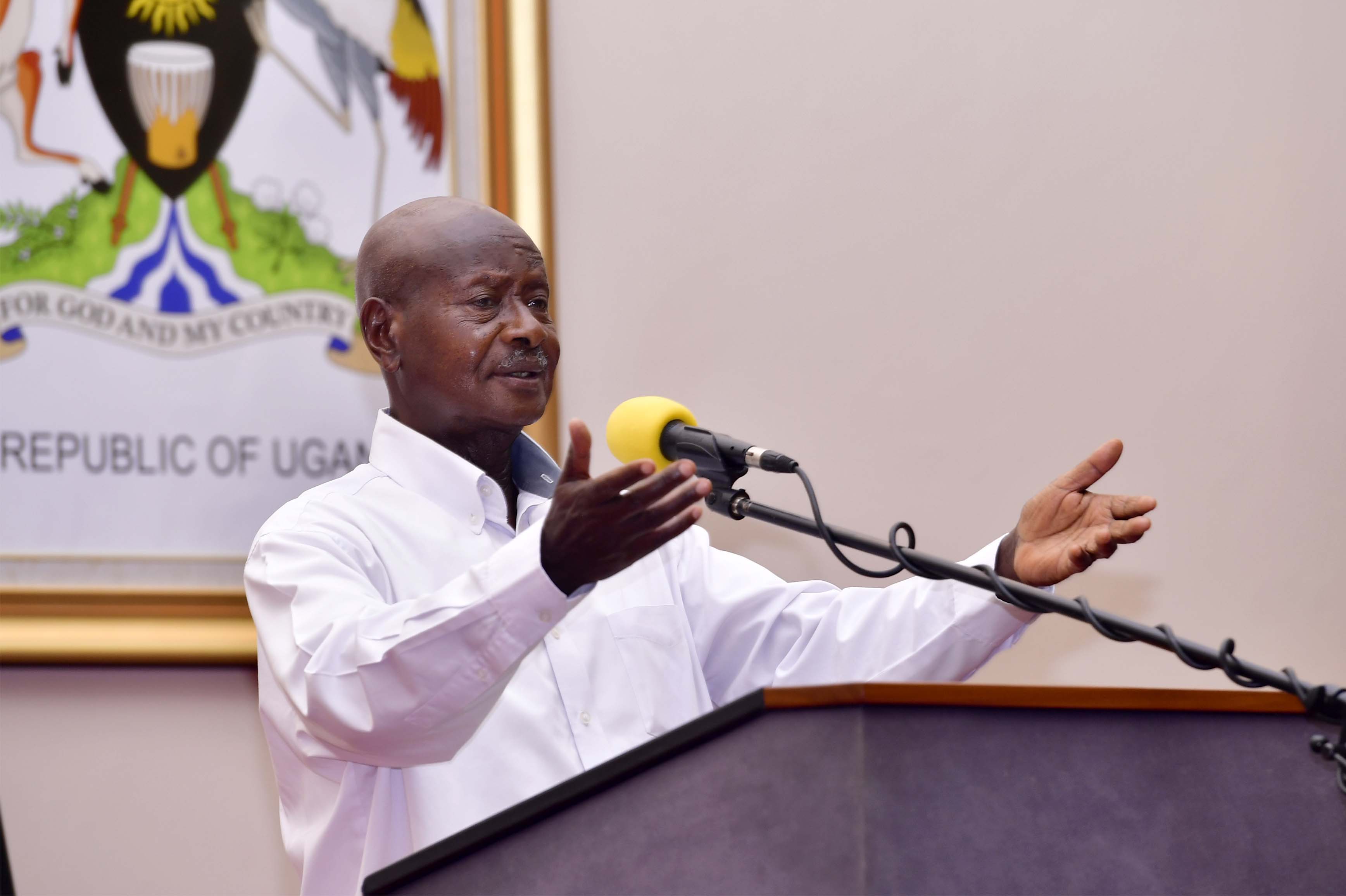Although President Museveni acknowledges the various challenges posed by the coronavirus, he says Ugandans must be innovative and find ways of doing business with minimal human contact to arrest the spread of the virus.
The president said this while issuing a directive barring buses, taxis, boda bodas and other forms of public transport from operating.
Full unedited statement by the president
The country has registered five more cases, bringing the total to 14 confirmed cases.
Among these new cases is a trader from Adjumani who frequented the border with South Sudan, a baby in Iganga whose father had recently returned from Kisumu Kenya and two Chinese nationals recently stopped in Zombo on their way to DR Congo.
Minus the new cases, the of the nine earlier recorded, eight are responding well to treatment. Their temperatures have come down. Only one case still has temperature fluctuations but our medical people are closely monitoring.
We expect to get more reports of scattered cases but on the whole, we are happy that we took critical decisions early enough like closing schools and centres of worship. This greatly reduced points of contact.
However, now that we have some new cases, the government must take additional measures to check the spread of this disease. We cannot wait until more people are infected.
Therefore, with immediate effect, the government is suspending public transport for 14 days. This directive affects taxis, coasters, minibuses, buses, all passenger trains, tukutukus (tricycles) and bodabodas carrying passengers. The rationale is to minimise movement and contact among people.
Only private vehicles are allowed to operate and these should not have more than three passengers, including the driver, at any single time. Therefore, let us not see families of more than three packed in a private car.
Other vehicles that are not affected by this suspension are the trucks (lorries) delivering cargo, delivery vans, and pick-ups delivering essential commodities and food. None of these vehicles should be used to ferry passengers.
Hospital ambulances, vehicles belonging to the security forces and some key government institutions doing essential work, plus those offering sanitary services are also exempt of this suspension. We must help people suspend their unsafe journeys.
The other area of concern are the markets. They bring together many people. I have received reports that most markets have improved their sanitation, etc. But there are still questions on how, for example, people can enforce social distancing in markets.
Therefore, whereas the government will not close markets, there will be some adjustments. With immediate effect, markets should only be used for sale of foodstuffs. We are talking about items like matooke, sweet potatoes, cassava, rice, beans, cowpeas, beef, chicken, vegetables, etc.
Trading of non-food items in the markets is suspended immediately. There should not be sale of items like clothes, necklaces, phones, sandals, shoes, etc. We expect this to greatly reduce numbers in the markets and help enforce social distancing.
I have also directed government ministries, agencies and departments to work out plans where only essential staff report for duty in the offices. The non-essential staff should work from home. Critical agencies like the Uganda Revenue Authority will continue in full operation.
Out of this pandemic, we must learn new ways of doing business. We must find ways of trading but with minimal human contact. For example, the supermarkets should consider doing deliveries using for example bodabodas (which can only carry cargo but not passengers).
In Kampala, companies will be identified to support this cargo delivery business. I have cautioned the ministers and other government officials against corruption in this identification process.
I also want the country to know that we have a nationwide system of responding to reports of suspected cases. We have village health monitoring teams that inform the about 100 hubs (health centres) once a case is suspected. The hubs have capacity to take samples which are then sent to Entebbe for testing.
Because the teams in the countryside will need transport to respond to cases, I am directing that all government vehicles at the district be surrendered to a pool to be overseen by the district health officer with support of the police and army.
Once there are reports of a suspected case, availability of transport should not be an issue. The government will also make fuel available for these operations. Only the police and army cars are exempt from this mandatory pool arrangement.
Finally, I want to draw your attention to a Biblical verse. In Isaiah 26:20, it says, “Go home, my people, and lock your doors! Hide yourselves for a little while until the LORD’s anger has passed.”
What we are dealing with are not new things. They have been there in the past and were handled. This too will be handled. I wish you all the best.




